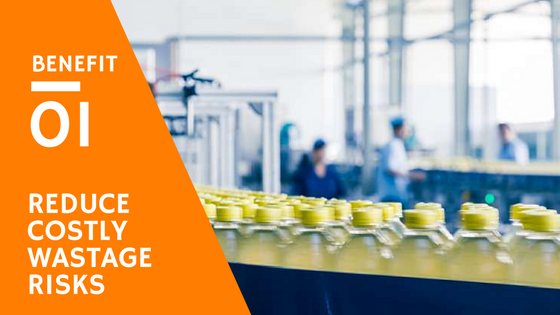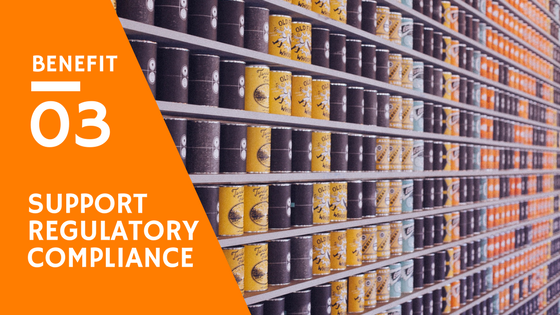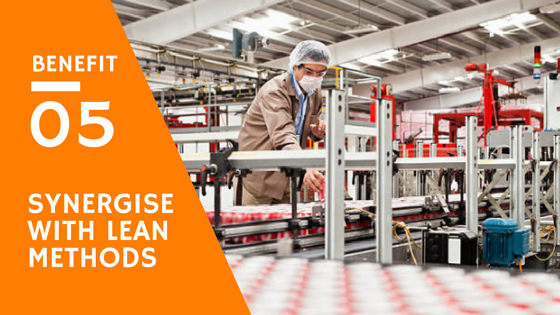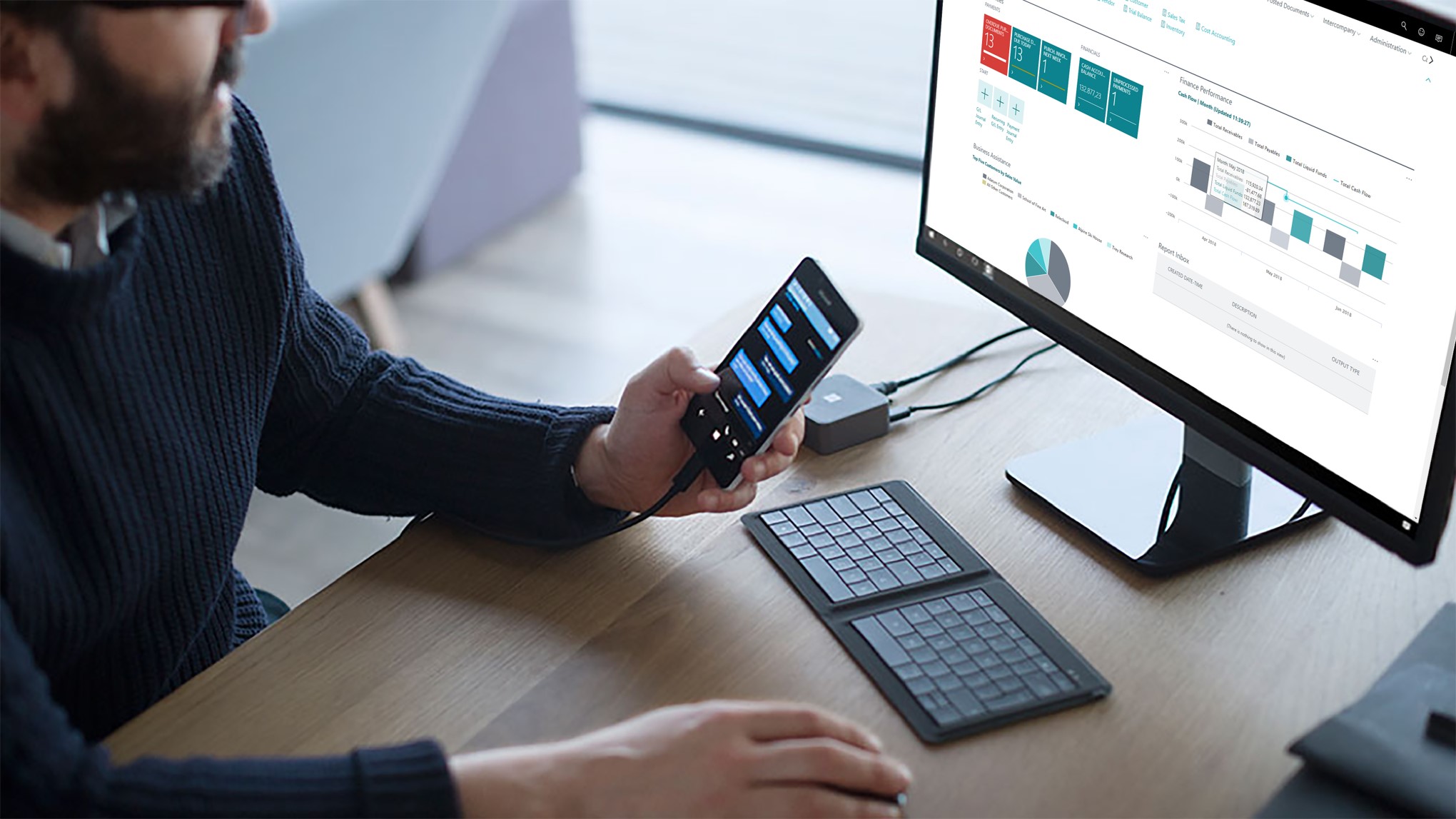So you’ve heard a lot about enterprise resource planning (ERP) software. And you might be wondering what ERP software can really do for your F&B business.
Keep track of numbers and run reports? Sure, it can do that, but so does your standard accounting software.
What sets ERP solutions apart from a ‘glorified’ accounting system lies in its capabilities to drive real business growth. Successful F&B businesses use ERP software to get their finances, inventory, operations, and sales data under centralised control.
They also use ERP solutions for deep data-driven insights to help them spot opportunities and problems across their entire business — capabilities a regular accounting software could never provide.
But there’s more. Here are six surprising ways your F&B business can benefit from ERP software:
1. ERP Reduces Costly Risks of Stockouts and Wastage

Demand planning is a tricky balancing act. On one hand, you need to keep enough stock or raw materials to satisfy demand. On the other, you can’t hold too much stock and risk wastage of unsold products or materials.
A reputable ERP solution helps F&B companies take out the guesswork in anticipating demand and managing inventory. With a proper integrated and centralised system in place, companies can track real-time demand and forecast periods of increased or diminished demand for specific products. Using this information, businesses can proactively adjust their inventory to maximise revenue and reduce costs.
In addition, a good ERP solution simplifies inventory tracking through a variety of functions, including lot control, FIFO, expiration dates, shelf life management and more. Businesses can identify dead stock and soon-to-expire products, and make informed inventory and shipping choices to reduce waste.
For example, listed manufacturer and food chain Old Chang Kee gained up to 50% improvements in logistics productivity while improving inventory management after investing in an ERP software.
For F&B companies that deal in perishables with short shelf lives, such as fishballs, this could spell the difference between a healthy bottom line and going into the red.
2. ERP Supports Brand Protection Efforts

Remember the social media hoo-hah over the discovery of a cockroach in a wrap purchased from a Subway outlet in Singapore? It takes years to build a brand, but just one day to ruin it.
While most companies focus their efforts on branding activities, a surprisingly effective way to protect your brand is through ERP software.
ERP software provides automated and instant end-to-end traceability for every action that affects each link in the supply chain. By tracking lots, dates, quantities and movements of products and ingredients, you can work backwards to trace ingredient sources, and look forward to trace the disposition of products. Issues affecting your supply chain can be swiftly identified, reported and resolved.
And because ERP software supports real-time tracking of products and ingredients, this allows you to quickly determine where goods are and who to contact in case of a recall. A smooth recall reassures stakeholders, auditors and regulators of your commitment to excellence, while news of a failed recall may just damage hard-earned confidence built up between your suppliers and distributors, prompting them to take their business elsewhere.
In short, brand protection and ERP software go hand-in-hand. When it comes to running a F&B business, the best way to protect your reputation is to give your customers and vendors a steady, ongoing assurance of quality and supply chain robustness.
3. ERP Supports Regulatory Compliance

On a tangential note, a good ERP solution not only safeguards your brand, but also supports regulatory compliance.
Compliance with food safety regulations has always been a major challenge within the F&B industry. Strict regulations require companies to track the movement of products and ingredients throughout the supply chain. For F&B companies with multiple suppliers, distributors and retailers, they have the additional challenge of managing complex supply chains across the world.
An ERP software assists with your compliance efforts by automating product and ingredient tracing. ERP software establishes and maintains records of the source and destination of products and ingredients. You can track goods in real-time simply by consulting the central database.
Real-time tracking also provides additional benefits. You can identify and resolve potential points of cross-contamination, and ensure timely delivery of ingredients and products to where they are needed.
4. ERP Simplifies Restaurant and Franchise Management

F&B companies with multiple restaurants and franchises need to draw data from every location to make strategic decisions. With multiple data sources, regular analyses and reporting can become time and labour-consuming – especially if your outlets are using disparate systems.
ERP software simplifies control over multiple outlets and anticipates future customer demand. You can easily integrate an ERP solution with POS systems in outlets to create automated daily sales reports. Cash monitoring, tracking cost versus sales performance, and monitoring the profitability of various locations is as simple as consulting the central database. Managers can identify highly-profitable locations and apply best practices across the board.
ERP solutions also help you create an exceptional customer experience through demand forecasting. Management can easily track demand fluctuations for seasonal products at different locations. For F&B manufacturers and distributors, ERP systems can also integrate with your outlet-generated forecasts. By anticipating demand in advance, you can fine-tune offerings to satisfy customers, manage inventory and generate additional revenue.
5. ERP Synergises with Lean Manufacturing Methodologies

Manufacturers will recall the surge of interest in Lean Manufacturing several years ago.
Back then, lean manufacturing methods were touted as the answer to traditional cost-cutting methods of freeing P&L space for investment.
While some scepticism among manufacturers remains, lean manufacturing used to its fullest can liberate large amounts of cash, fueling growth and improving quality with better, fresher, greener, and more delicious food-and-beverage products. It can also be a source of employee engagement and capability-building opportunities.
In an industry marked by high costs and low profit margins, lean manufacturing is a proven approach to boost revenue and reduce costs. According to BCG, lean methodologies can cut costs of goods by up to three percent, corresponding to 20 percent of your addressable cost base.
ERP software is an invaluable tool for F&B companies that have adopted lean manufacturing. It supports five lean production principles: specifying value, value stream identification, continuous system flow, customer pull and pursuit of perfection.
You can use ERP software to track, record, and perform analyses on existing lean practices to assess performance and identify opportunities for improvement. With such data, F&B companies can slash costs, increase profits and maximise business performance.
6. ERP is an Affordable Investment for F&B Businesses

Finally, an ERP solution is an investment. And like all investments you must meet the costs up front.
The good news is that most ERP software today are designed with small and midsized enterprises (SMEs) in mind. This makes them more affordable for the typical F&B SME in Asia.
And when you account for long-term benefits and manage the costs of implementation, an ERP software investment becomes remarkably affordable.
For example, having a single, integrated ERP solution offers far greater utility than a bundle of disparate software. Once integrated into your existing architecture, an ERP solution streamlines cross-department communication and operations.
Furthermore, if you choose a Cloud-based ERP software, you do away with the costly burden of installing and maintaining software and hardware.
Taken altogether, ERP software offers superior productivity and efficiency enhancements. The cost of implementation can be managed through proper preparation. Budgeting, establishing a clear project scope, and managing stakeholder expectations goes a long way towards keeping costs contained.
But be aware of hidden costs. Off-the-shelf ERP software may not be suitable for your needs. Do partner with an experienced vendor with a track record of successful implementation to ensure a smooth delivery.
Mastering Demand Planning in the F&B Industry
In summary, ERP software provides a surprising number of benefits for the F&B industry. Not only does it help F&B businesses like yours drives better decision-making, it also supports compliance and brand protection management, manages complexity and enhances your bottom line.
Implemented effectively, an ERP solution pays for itself several times over.
If you’d like to find out more on how ERP software can help you improve demand planning and efficiency in your business, check out our free guide below.




